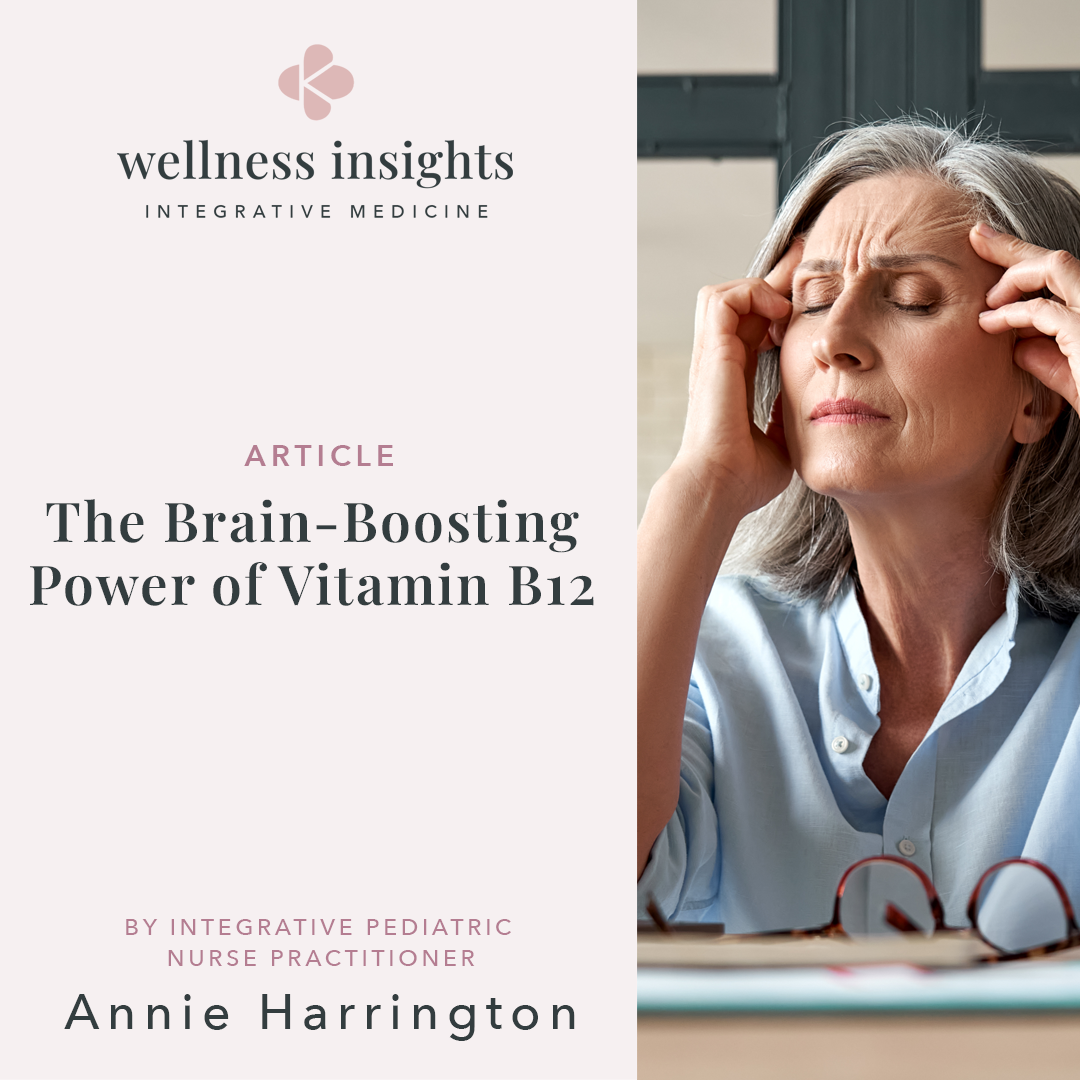Vitamin B12 and Brain Health: The Essential Nutrient for Energy, Mood, and Focus
A core tenant of integrative medicine is the understanding of the interconnectedness of mind and body and how our physical and mental health are inseparable.
One essential nutrient that beautifully illustrates this connection is Vitamin B12. Vitamin B12, or cobalamin, is essential for a wide range of bodily functions including the production of red blood cells, the synthesis of DNA, and the health of our nervous system.
But its role in brain health is particularly noteworthy: B12 helps in the creation of neurotransmitters, the chemical messengers that regulate our moods, and it plays a critical part in the breakdown of homocysteine.
Elevated homocysteine levels are associated with an increased risk of cognitive decline, Alzheimer's disease-like symptoms, neurological issues, as well as heart disease. B12 helps protect our brain's long-term health by ensuring the transformation of energy from food to cellular energy in our mitochondria, reducing homocysteine.
In addition to the risk of chronic disease development, low B12 levels can cause a wide range of symptoms that reduce our quality of life including:
Fatigue
"Brain fog"
Memory problems
Mood changes and irritability
Anxiety and depression
This means ensuring adequate B12 status is a foundational step in any comprehensive wellness plan, especially for those experiencing these symptoms. B12 levels can be checked through a simple blood test and checking this vitamin is standard practice amongst the providers at Wellness Insights.
B12 is naturally found mainly in animal products such as organ meat, shellfish, eggs, and dairy. Additionally, foods like nutritional yeast, fortified plant milks, tofu, tempeh and mushrooms can provide dietary B12 for those avoiding animal products. And while many people maintain adequate B12 levels from a varied and balanced diet, there are certain groups that are at increased risk of deficiency:
Older adults as they often have reduced stomach acid, which is necessary to absorb B12 from food.
People who follow vegan or strict vegetarian diets
Individuals with gastrointestinal disorders like Crohn's disease & Celiac disease
Those who have had bariatric surgery, which can make dietary absorption of B12 more challenging
Individuals with long-term use of alcohol and certain medications (like proton pump inhibitors and metformin) as these can interfere with B12 absorption
When it comes to supplementing, patients have a choice between intramuscular (IM) B12 injections, oral, and under-the-tongue supplements. Oral supplementation is a convenient, effective and cost-effective option for many, especially those with a mild deficiency or those simply looking for maintenance.
However, for people with significant absorption issues, digestive disorders, pernicious anemia or significant symptoms looking to feel better faster, IM injections are an alternative route. Injections bypass the digestive system entirely, ensuring near-100% absorption and providing a rapid, effective boost.
We can help determine the best form of supplementation for your unique needs, taking into account your symptoms, lifestyle, and lab results. For those who opt for IM injection, Annie Harrington can provide them in our office.
Next time you are in our office, seeing one of our providers, ask them about your B12, feeling empowered you know its importance to your overall health.
This blog and website do not provide medical advice. It is intended for general informational purposes only and does not address individual circumstances. It is not a substitute for professional medical advice, diagnosis or treatment and should not be relied on to make decisions about your health. Always check with your own healthcare provider before taking a new supplement and before making any significant diet, lifestyle, exercise or other changes. Never ignore professional medical advice in seeking treatment because of something you have read on this site. If you think you may have a medical emergency, immediately call your doctor or dial 911.

